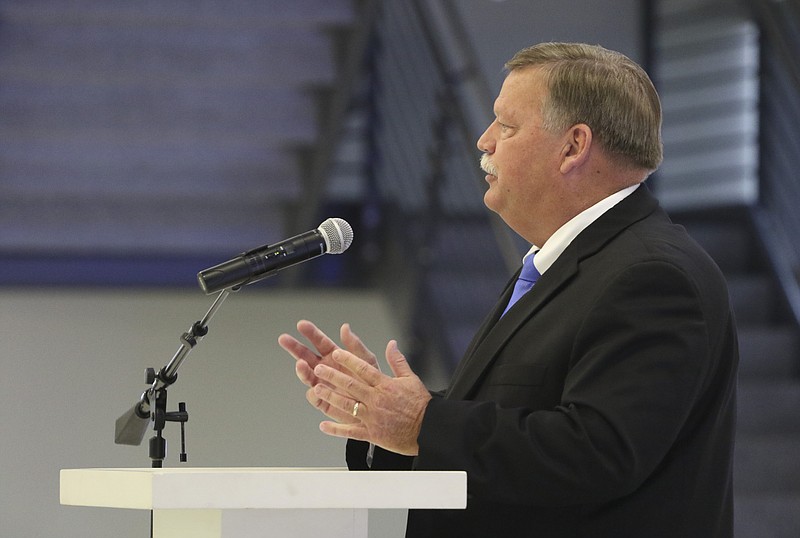If it's possible that Hamilton County Mayor Jim Coppinger and Hamilton County city mayors make valid points about who does and doesn't get sales tax money shared among municipalities and the state, then it may be time to address the issue on a statewide basis.
Coppinger believes the estimated 100,000 residents in the county's unincorporated areas don't get their fair shake of the money, while city mayors maintain that rejiggering the current allotment would force them to raise taxes or cut services.
The county mayor, who made his remarks at a legislative breakfast last week, said the county has full responsibility for schools, health care, ambulance service, jails and law enforcement. And the push is already on for the next round of new schools and for a jail up to 21st-century standards.
A sales tax agreement between Hamilton County and Chattanooga that had been updated in the 1960s expired several years ago and has not been renewed, leaving the county an additional $13 million short.
City mayors, however, say the cities are the county's economic engine, with a lot that is attractive about the county because of what is in the cities. And what is in the cities, they argue, is the result of the additional municipal taxes city residents must pay.
And they say that what began in 1947 for the cities as 20 percent of the total tax take is now down to 9 percent.
Instead of simply changing the tax-sharing agreement, taking from the cities and giving to the counties, maybe state legislators can look at a variety of scenarios that would sweeten the pot for the counties without hurting the cities.
Since state revenue collection has exceeded estimates, this might be the right time.
But state legislators may not be so keen on the idea since roads, education and health care are knocking on their doors for more funding.
Both Coppinger and state Sen Bo Watson, R-Chattanooga, are looking at how more equitable formulas might be calculated, but that may be something that needs more eyes, perhaps those of a legislative study committee that would examine the situation from the inside out.
The issue is not one that is likely to have a quick and immediately agreeable legislative fix. Nor should it. Both cities and counties have more on their plates than they did in 1947, so when a nearly 70-year-old agreement is revised it needs to take into account what all those entities do today. And the 2016 legislative session is a good place to start.
